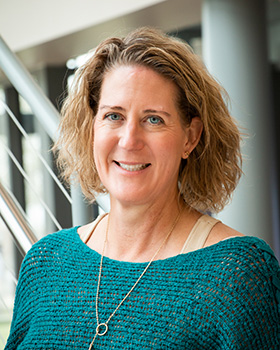For most degrees at McHenry County College, students are required to take courses in the social and behavioral sciences disciplines. Such courses include economics, geography, and psychology, among several others.
One of the primary subjects under this umbrella of courses is history. There are multiple history courses offered at MCC covering a wide range of topics, but two of the most popular are United States History I and United States History II.
What many students may be unaware of is that there is a major change occurring within these courses. Starting with the Fall 2023 semester, all students enrolled in either course were required to write a research paper.
The history department’s goal for creating this assignment was to standardize the curriculum.
Sarah Sullivan, the history department chair, cited numerous factors that contributed to this change.
“Those are courses that are being taught in the high schools in great numbers,” Sullivan said. “So, in order to standardize the rigor and the experience of students here versus there, because they are getting college credit there, we wanted to make sure that there was some degree of consistency.”
Sullivan states that there are over 20 sections of U.S. History I and II being taught in two

school districts, with two more being added in the fall. Two-thirds of all sections of these courses are taught in local high schools.
“In anything in life, the bigger something gets, the more you need process and procedure to keep it all in alignment,” Sullivan said. “We needed to make sure that we were standardizing our rigor or the level at which we’re teaching and making sure there was that consistency.”
The history department also maintains the requirement of 15 written pages per student. This is in place to ensure students receive the appropriate college credit and meet other institutions’ requirements. The research paper helps students reach this mark.
The assignment contains several components with which students are familiar. The research paper must be six to eight pages long, with four primary and four secondary sources used throughout the paper.
All sources must be documented appropriately through footnotes and a bibliography, both of which utilize the Chicago citation style. Sullivan emphasizes that since many students may be unfamiliar with this style, instructors tend to be lenient with grading the formatting.
The research paper’s prompt is unique. Students can research any historical topic of their choosing if it falls within the course timeframe. U.S. History I covers content from America’s beginnings to 1865, and U.S. History II covers content from 1865 to the present.
Sullivan stated that the research paper is about using evidence to support an argument.
“It’s about doing the research and proving the point,” Sullivan said. “It could be any point that you want to prove, as long as you can actually support it with evidence.”
Chris Jaffe is a history instructor at MCC who has experience teaching both courses in the American history sequence. Jaffe states that his course structure has mostly remained the same since the change, specifically regarding his midterm and final exams.
“The big change is I spent a class period in the library where one of the librarians explains research options in the library and how that can help students,” Jaffe said. “For years now, I’ve felt that I’m not utilizing MCC resources enough in my classes, and now I’m much more involved due to my greater cooperation with the school library.”
As a result of the research paper, Jaffe has also reduced the number of small writing assignments that he gives to his students. Students also no longer need to buy an additional book of sources used for such assignments.
Jaffe believes that his students are handling this change well. He has broken down the research paper assignment into smaller pieces for his students to help them manage the assignment.
Leenah Alas, an MCC student who has taken history courses affected by this change, also believes that students are adapting well to it.
“The length of [the paper] can be intimidating to complete, so that is always scary for a student,” Alas said. “However, I think most people will be fine with it, even though it isn’t the easiest task.”
Alas states that she enjoyed diving into a topic that appealed to her while also benefitting from the valuable lessons of researching for reliable sources and formatting papers.
The research paper has many benefits to students and faculty alike. Since all the instructors grade the papers with the same rubric, they can ensure that they are grading them fairly. This helps maintain the consistency for which the department was striving.
The assignment also meets both MCC’s general education goals and the courses’ objectives.
Alongside the benefits to instructors, students are prepared for further education and the workforce.
“I don’t know anybody, in any job, where they don’t want employees that are good communicators,” Sullivan said. “These are really very useful skills that we’re emphasizing in the paper.”
Jaffe also sees the benefits of the research paper in the working world.
“The more experience you can get in college with this, the more prepared you can be in real life for it,” Jaffe said. “Thus, it does help to give people some experience in the time management, effort, and overall focus needed to complete such a thing.”
Alas recommends that students begin working on their research paper early on and heeding instructor’s deadlines. Like Sullivan and Jaffe, she believes students can benefit from the research paper.
“In previous history classes before college, it was all about memorizing facts and dates for tests,” Alas said. “But, in the classes I’ve taken at MCC, the focus is more on acquiring new skills, like historical writing and document analysis. It is less repetition and more inquiry, which I prefer.”
The research paper assignment may seem hefty to students. However, MCC instructors are available to assist students every step of the way. Jaffe encourages his students to speak with him if they have any concerns about their paper.
Sullivan looks forward to seeing how the assignment will thrive in the coming semesters. For students who may have some doubts about their abilities to complete the research paper, Sullivan puts it simply.
“I think it is really helpful for students, even if it’s not something they want to do,” Sullivan said.
“We don’t all want to eat our veggies, but we know they make us stronger.”






